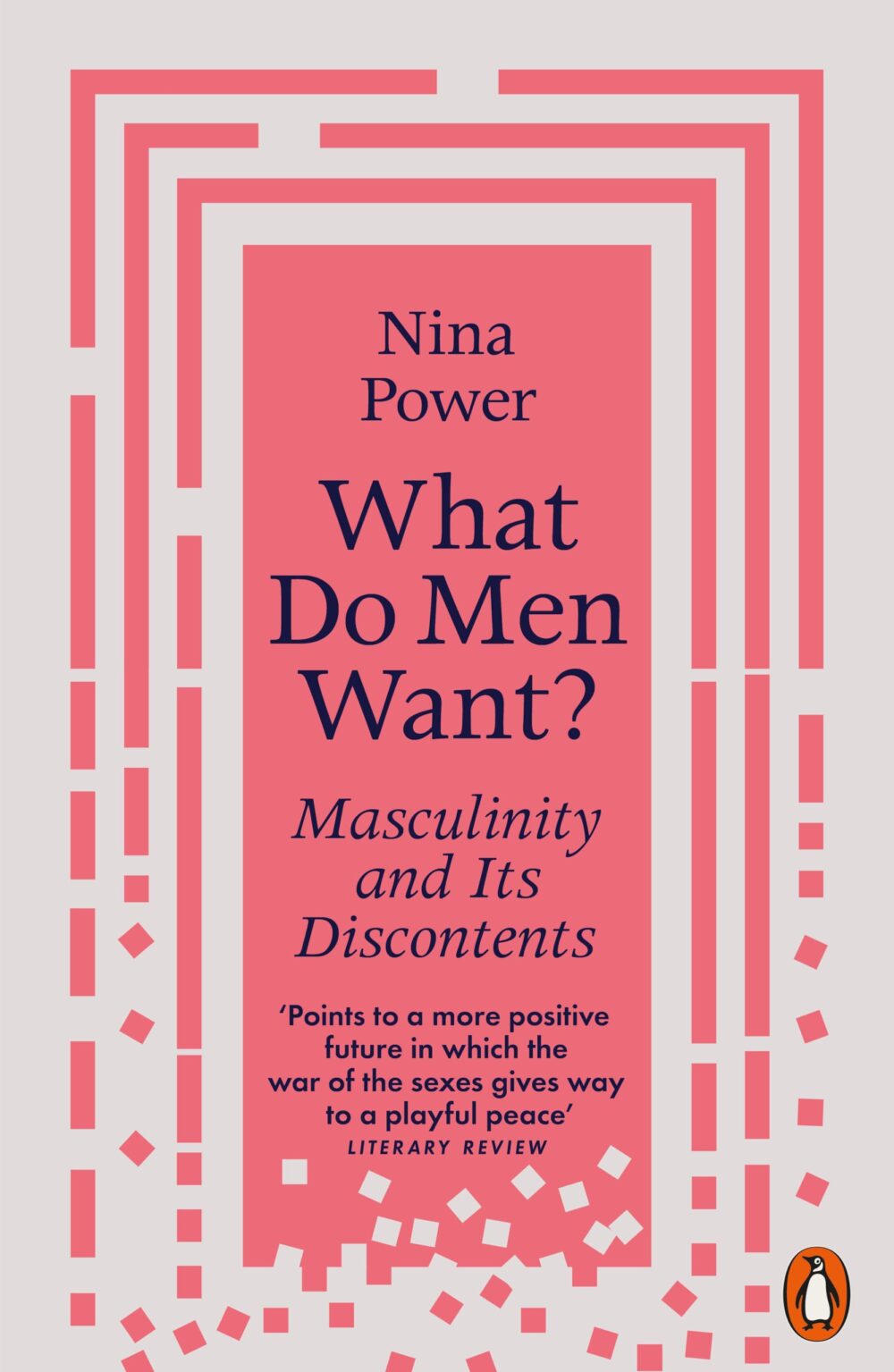What Do Men Want?: Masculinity and Its Discontents
2.500,00 د.ج
Something is definitely up with men. From millions online who engage with the manosphere to the #metoo backlash, from Men’s Rights activists and incels to spiralling suicide rates, it’s easy to see that, while men still rule the world, masculinity is in crisis.
How can men and women live together in a world where capitalism and consumerism has replaced the values – family, religion, service and honour – that used to give our lives meaning? Feminism has gone some way towards dismantling the patriarchy, but how can we hold on to the best aspects of our metaphorical Father?
With illuminating writing from an original, big-picture perspective, Nina Power unlocks the secrets hidden in our culture to enable men and women to practise playfulness and forgiveness, and reach a true mutual understanding and a lifetime of love.
Something is definitely up with men. From millions online who engage with the manosphere to the #metoo backlash, from Men’s Rights activists and incels to spiralling suicide rates, it’s easy to see that, while men still rule the world, masculinity is in crisis.
How can men and women live together in a world where capitalism and consumerism has replaced the values – family, religion, service and honour – that used to give our lives meaning? Feminism has gone some way towards dismantling the patriarchy, but how can we hold on to the best aspects of our metaphorical Father?
With illuminating writing from an original, big-picture perspective, Nina Power unlocks the secrets hidden in our culture to enable men and women to practise playfulness and forgiveness, and reach a true mutual understanding and a lifetime of love.
| Editeur |
|---|
Produits similaires
When Breath Becomes Air: THE MILLION COPY BESTSELLER
When Breath Becomes Air chronicles Kalanithi’s transformation from a medical student asking what makes a virtuous and meaningful life into a neurosurgeon working in the core of human identity – the brain – and finally into a patient and a new father.
The Hidden Life of Trees: What They Feel, How They Communicate
We Should All Be Feminists
What does “feminism” mean today? That is the question at the heart of We Should All Be Feminists, a personal, eloquently-argued essay – adapted from her much-viewed Tedx talk of the same name – by Chimamanda Ngozi Adichie, the award-winning author of ‘Americanah’ and ‘Half of a Yellow Sun’. With humour and levity, here Adichie offers readers a unique definition of feminism for the twenty-first century – one rooted in inclusion and awareness. She shines a light not only on blatant discrimination, but also the more insidious, institutional behaviours that marginalise women around the world, in order to help readers of all walks of life better understand the often masked realities of sexual politics. Throughout, she draws extensively on her own experiences – in the U.S., in her native Nigeria – offering an artfully nuanced explanation of why the gender divide is harmful for women and men, alike. Argued in the same observant, witty and clever prose that has made Adichie a best-selling novelist, here is one remarkable author’s exploration of what it means to be a woman today – and an of-the-moment rallying cry for why we should all be feminists.
No Friend but the Mountains: The True Story of an Illegally Imprisoned Refugee
In 2013, Kurdish journalist Behrouz Boochani sought asylum in Australia but was instead illegally imprisoned in the country’s most notorious detention centre on Manus Island. He has been there ever since. This book is the result.
Behrouz Boochani spent nearly five years typing passages of this book one text at a time from a secret mobile phone in prison. Compiled and translated from Farsi, they form an incredible story of how escaping political persecution in Iran, he ended up trapped as a stateless person. This vivid, gripping portrait of his years of incarceration and exile shines devastating light on the fates of so many people as borders close around the world.
No Friend but the Mountains is both a brave act of witness and a moving testament to the humanity of all people, in the most extreme of circumstances.
'A brilliant book. No Friend but the Mountains can rightly take its place on the shelf of world prison literature . . . It is a profound victory for a young poet who showed us all how much words can still matter.' - Richard Flanagan, Booker Prize winning author of The Narrow Road to the Deep North
The Man Who Mistook His Wife for a Hat
If a man has lost a leg or an eye, he knows he has lost a leg or an eye; but if he has lost a self – himself – he cannot know it, because he is no longer there to know it.
In this extraordinary book, Dr. Oliver Sacks recounts the stories of patients struggling to adapt to often bizarre worlds of neurological disorder. Here are people who can no longer recognize everyday objects or those they love; who are stricken with violent tics or shout involuntary obscenities, and yet are gifted with unusually acute artistic or mathematical talents. If sometimes beyond our surface comprehension, these brilliant tales illuminate what it means to be human.
A provocative exploration of the mysteries of the human mind, The Man Who Mistook His Wife for a Hat is a million-copy bestseller by the twentieth century's greatest neurologist.
Part of the Picador Collection, a series showcasing the best of modern literature.










